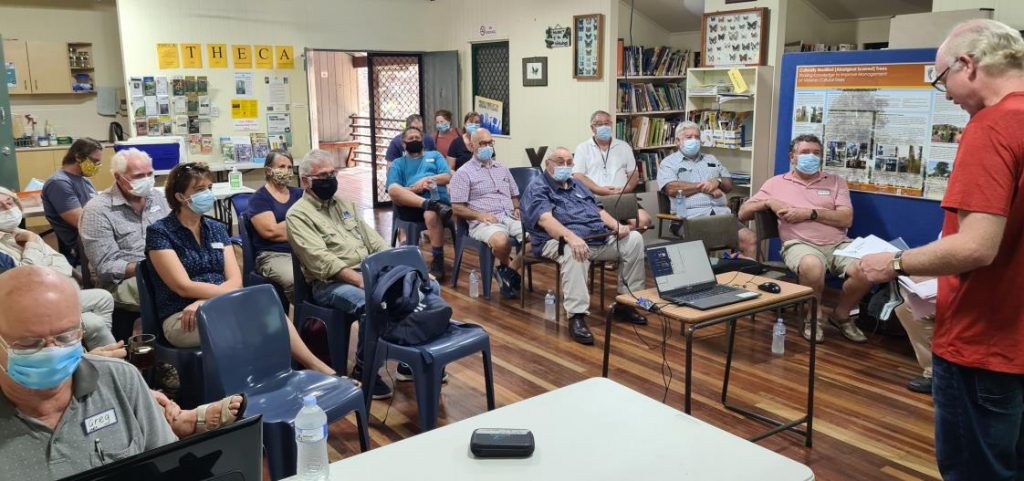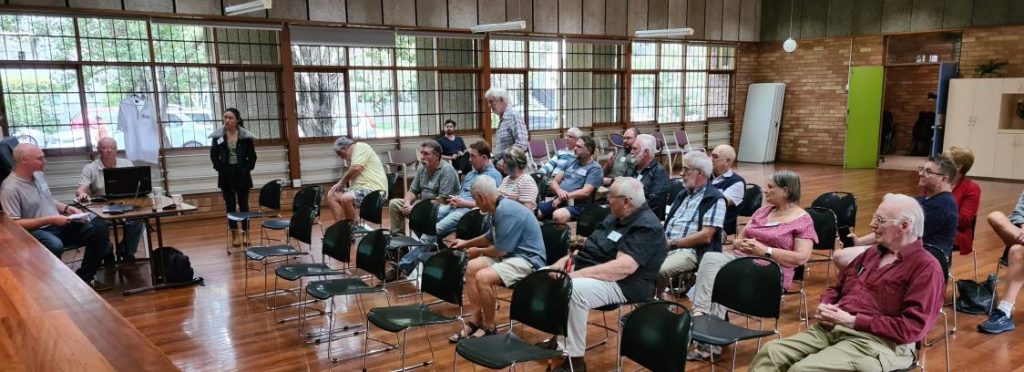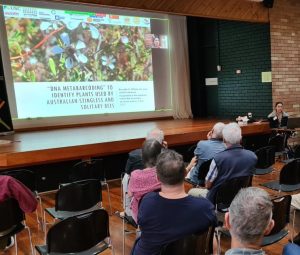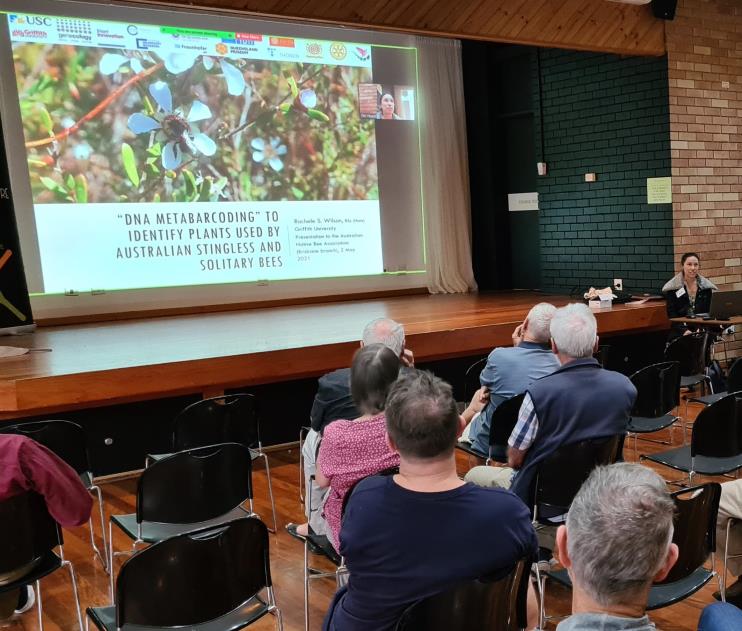Two branch meetings have passed since the last Cross-Pollinator: April and May monthly meetings.
April meeting
The April meeting at THECA Chapel Hill was attended by about 24 members in person and another 30 online. The Chair Dean Haley opened the May meeting and welcomed attendees. We launched straight into our main business, the guest speaker, and moved the club business to the end, to work better with online attendees.
Guest speaker: Matthew Middleton, owner/director of Beezotted was the guest speaker for this meeting and pre-sented the topic “My experiences with PNG bees”. Matthew spoke about his experience managing a project in the Markham Valley PNG teaching villages how to man-age local native stingless bees that have never really been used before in traditional culture or as a food source. Matthew shared some amazing stories and insights into the challenges and beauty of Papua New Guinea.
General business: We discussed our financial position and upcoming events and meetings.

Photo: Above, the April meeting was held under mask restrictions. After nearly 5 years, we have outgrown the THECA hall.
Below, our new digs at Bulimba Hall has plenty of room for growth and boasts a huge screen (see Rachele presenting at the May meeting on the next page)

May meeting
The May meeting at our new venue the larger air-conditioned, more central, and with better parking Bulimba Community Hall was attend by about 25 members in person and another 11 online. Our committee pulled to-gether to make this meeting a success. Ian Driver organised the new venue. Jennifer Shea printed name tags. Greg Shea provided technical backup, so the live feed fed fully
The Chair Dean Haley opened the May meeting and welcomed attendees, especially those attending for the first time. We launched straight into our main business, the guest speaker.
Guest speaker: Rachele Wilson undertakes research on ecological interactions in natural and agricultural landscapes to inform land/animal management. She spoke about DNA metabarcoding to identify pollens or nest materials of plants that native bees have accessed. Rachele shared some remarkably interesting data on the diversity of plants accessed at certain times of the year.
Rachele uses DNA metabarcoding to identify the pollens stored in stingless bee colonies, and in solitary native bee nests. She also used this technology to identify the nest materials used by the solitary bees. Her studies included 4 natural forests, and 3 macadamia orchards in the Queens-land areas of Bundaberg and Sunshine Coast over a period of 2 years. She sampled 160 pollen samples from 57 sting-less bee hives, and also sampled 2,251 brood cells from solitary bee nesting blocks.

She described the painstaking methods used to capture and collect the specimens and then the work done in the laboratory to identify the various plants. Rachele has been working on this project since 2017 when she first spoke to us at the beginning of her PhD project.
From her results, Rachele gained a deep understanding of the diversity of plants needed to support healthy pollination systems. The key findings were that stingless bees and solitary bees require a diversity of pollen types. Even in orchards which are effectively mono-cultures the bees still invest considerable effort to obtain this variety in their diets. Stingless bees used pollen from at least 6 to 11 spe-cies, and require pollen throughout the year. A range of native and introduced plants are important, including shrubs, vines, and particularly trees. Retaining at least some native vegetation is recommended for orchardists, as this native vegetation can provided much needed nutrition to both wild and managed bees.
General business: Dean conveyed some of the items discussed at ANBA Management Committee, including
• Moving native bees outside their natural geographic range
• World bee day events
• Honey bees in nature reserves
• ANBA shirts
• Agrifutures interest in native bees
The new venue was discussed. Acknowledged that it was further for some to travel but also that the space will al-low the club to grow, and the facilities are much better. Overall, there was majority support for the new venue.

